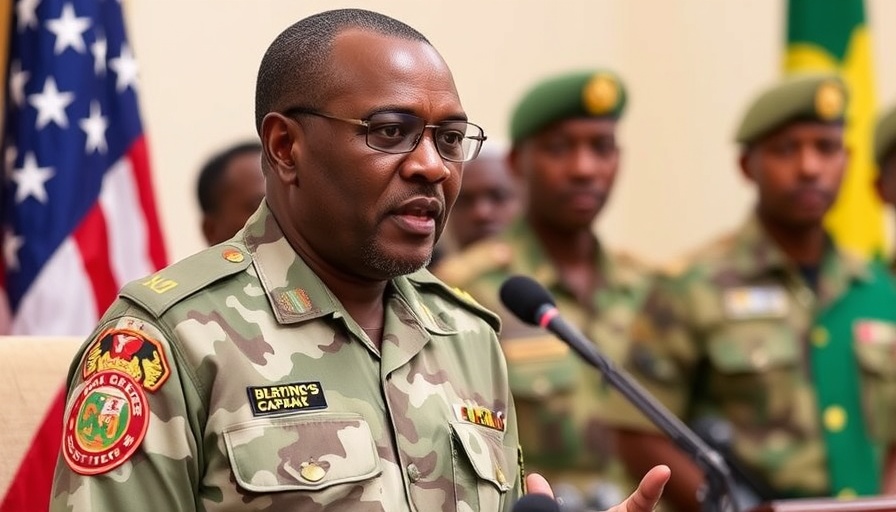
Understanding the Critique of Burkina Faso’s Leadership
The recent remarks by General Jonathan Berger, head of United States Africa Command (AFRICOM), have stirred significant discussion surrounding the governance of Burkina Faso, particularly in the context of its interim leader, Captain Ibrahim Traoré. General Berger, during a press briefing, articulated concerns that Traoré's leadership may hinder the progress needed to combat increasing extremist threats in the region.
Burkina Faso: A Nation at a Crossroads
Burkina Faso has experienced a tumultuous period marked by military coups and rising terrorist activities. Over the past years, there has been heightened instability, provoking widespread fear among citizens and prompting external reactions. With approximately 1.5 million people displaced from their homes due to violence, the humanitarian ramifications are dire. Africa’s geopolitical landscape makes it imperative for stakeholders, especially those in governance, to navigate these complexities prudently.
The Geopolitical Stakes of Traoré’s Leadership
General Berger indicated that the current trajectory under Traoré could alienate potential partners within West Africa. The growing influence of armed groups, primarily linked to Al-Qaeda and the Islamic State, poses substantial threats not just locally but in broader regional stability. Despite the increasing need for decisive alliances, Traoré’s government has exhibited reluctance to engage in broader diplomatic relations, which could jeopardize effective counter-terrorism operations in the region.
Implications for Africa’s Global Economic Positioning
As business leaders and policymakers observe these developments, the implications suggest a ripple effect on Africa’s role in global trade and diplomacy. Strained international relations can prevent foreign investment, a core driver needed for economic growth. As the continent seeks to strengthen its positioning within global markets, the internal strife and governance issues in countries like Burkina Faso become focal points that impact broader economic policies across Africa.
Call for Inclusive Dialogue and Reform
While criticism from external parties often evokes defensive reactions, it is essential for African leaders, including Traoré, to consider constructive feedback as a catalyst for positive change. Prioritizing inclusivity and transparency can foster a conducive environment for both governance and economic participation. For the global community invested in Africa’s development, the call for reforms is not just an isolated demand but an essential component of sustainable progress in the wake of diverse geopolitical challenges.
In this evolving landscape, the need for adaptable strategies becomes crucial. Rigorous engagement with local governance, participatory dialogues, and cross-border collaborations can fundamentally reshape the narratives around governance in Africa, paving the way for fitting solutions to regional dilemmas.
 Add Row
Add Row  Add
Add 


 Add Row
Add Row  Add
Add 

Write A Comment